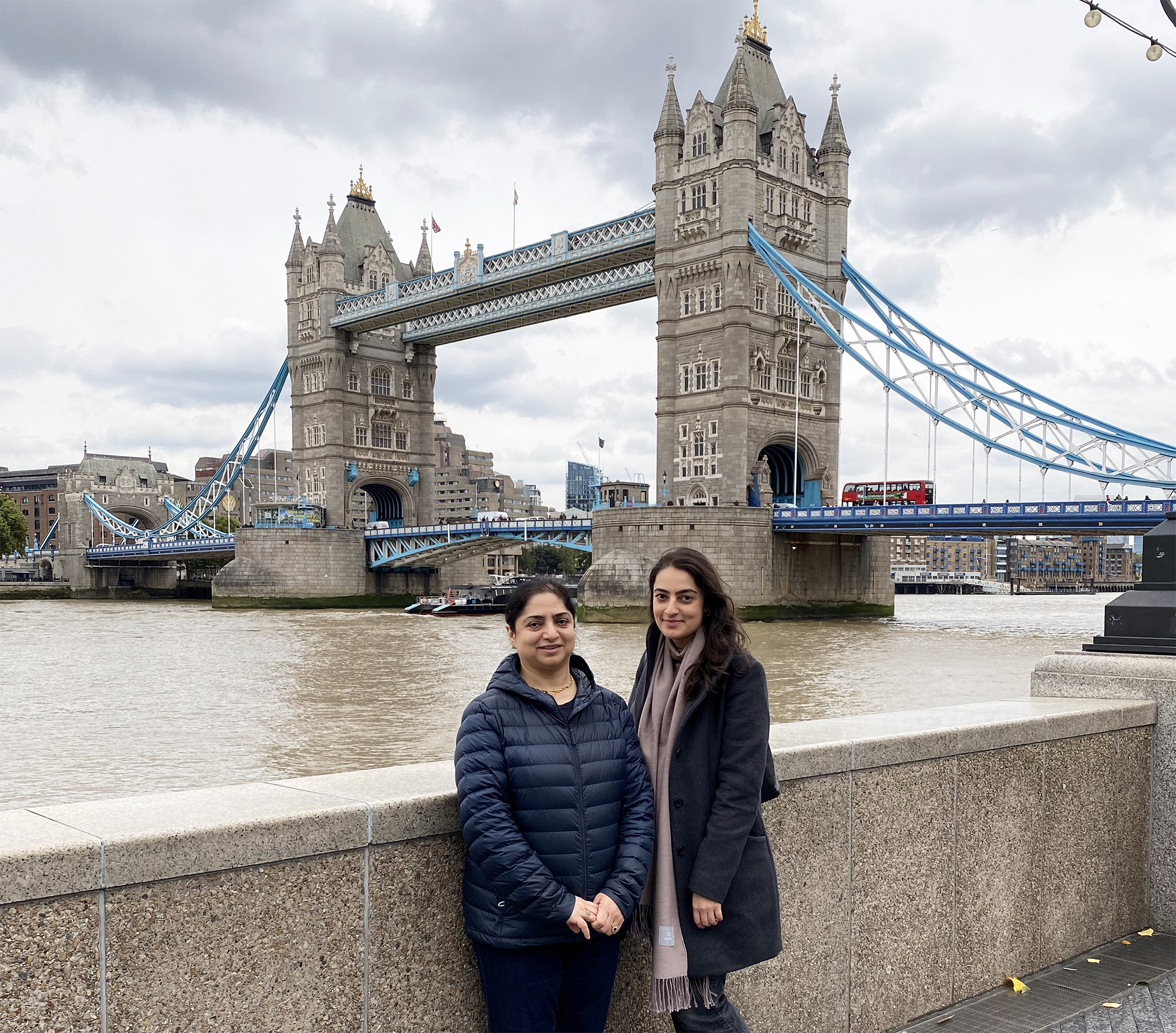I was born and raised in a small city in Pakistan called Jhelum, where I had a passion for pursuing medicine from an early age. I completed my Doctor of Medicine degree at Rawalpindi Medical College and started my post-graduate career as an intern in Internal Medicine and Obstetrics and Gynecology. Following my internship, I served as a Medical Officer in a rural area, where I was responsible for providing primary health care services to over ten villages and communities. I had the opportunity to manage an outpatient clinic for antenatal and postnatal patients while carrying out various national health programs, such as the World Health Organization's Polio eradication and Tuberculosis control and treatment programs. This experience helped me develop a compassionate, friendly, and flexible attitude and taught me to work effectively with people of different cultures, languages, and ethnic backgrounds. Later, I joined Rawalpindi Medical College as a Clinical Instructor in Pathology, where my interest in Microbiology emerged. I pursued my passion by completing a fellowship in Medical Microbiology.
My family immigrated to Canada soon after the completion of my fellowship. This was challenging for me both professionally and personally, as I had to start over in a new country far away from home. However, I was determined to pursue a career in Microbiology. During my early years in Canada, I spent time writing the qualifying exams required for international medical graduates while also working as a Subject Matter Expert for an electronic medical record company to build software for physicians working in the community. To keep my clinical knowledge up-to-date, I also worked as a Clinical Assistant at a family practice clinic in Toronto. After years of hard work, I was excited to join UBC’s Medical Microbiology residency program in 2012.
After completing my residency in 2017, I began working as a Medical Microbiologist with Fraser Health’s regional microbiology laboratory at Surrey Memorial Hospital (SMH). I have been in this role for over 5 years and also serve as the Site Medical Lead for Infection Prevention and Control at SMH. My areas of interest include rapid diagnostic methods with a focus on emerging molecular techniques, infection prevention and control, antimicrobial resistance, and tropical medicine.
Outside of work, I enjoy cooking and spending time with my husband and two daughters. We like to travel together to explore new locations and experience different cultures and cuisines.

How would you describe yourself?
Hardworking, resilient, and always motivated to learn.
Tell us about your role as a clinical faculty member at UBC?
I am working as a Clinical Assistant Professor at the UBC Department of Pathology and Laboratory Medicine. I enjoy teaching and sharing knowledge with trainees and colleagues and have been involved with a variety of undergraduate and postgraduate level courses at UBC over the course of the last five years. Additionally, I work as a Site Director for the UBC medical microbiology residency and IPAC fellowship programs. Working with trainees has been a very fulfilling experience for me and I was honored to receive recognition for my teaching last year via the Melvyn Bernstein Resident Teaching Award. In future, I am keen to expand my teaching and mentorship portfolio and contribute to the UBC-Fraser medical program.
What is the best part of your job?
Learning something new everyday is the most exciting part of my job! Whether it involves a new process at the bench, a new technology for infectious disease diagnosis or a new organism that I haven’t seen before. I am constantly learning about the rapidly evolving field of diagnostic microbiology which is an area of interest for me. I am very excited that our regional microbiology laboratory is expanding its molecular testing menu and bringing in more sensitive and rapid technologies to provide improved clinical care. Like many others in pathology, I also get excited seeing classic microscopic features on an old fashioned gram stained slide or stained slide for parasites/fungi and making connections with patients' clinical presentations.

Most challenging part of your job?
Working in a busy tertiary care hospital serving one of the fastest growing metropolitan cities in Canada can be very challenging. These challenges have been exacerbated during the past few years while working on the Covid-19 pandemic response. A few of my everyday challenges are: exploring new ways to provide the best diagnostic services efficiently to improve patient care and flow, helping other physicians with infectious disease diagnostic workup and providing infection prevention and control related support to the hospital.
What do you like most about mentoring students?
I enjoy working with students in ways they learn best and them to facilitate their learning experience. A significant number of students are infectious disease and IPAC fellows from other countries and I am always keen to learn from their experiences.
Tell us about a project or endeavor that you’ve participated in that makes you proud?
When the COVID-19 pandemic was declared in 2020, our regional microbiology laboratory did not have any on site capacity for Sars-CoV 2 testing. Fraser Health was among one of the regions with high COVID-19 positivity rate. My team worked with provincial colleagues to implement high volume COVID-19 testing at our regional microbiology laboratory and rapid molecular testing at the other regional hub sites. Soon our laboratory became the highest volume COVID-19 testing laboratory in the province. In recognition of this work, I received the Service Award from Fraser Health.
Are there any tips you want to share with students on how to be successful in medical practice?
Define your goals, work hard to achieve them but do not let perfection get in the way of progress. Take ownership of your learning goals, be curious and create opportunities to learn in ways that fit your learning style (eg. case based learning, presenting a case study, diving into relevant research literature etc.).
What advice would you give to a clinical teacher who is just starting out?
Seek opportunities to teach and let others know about your passion so they can share opportunities with you as well. Be open to feedback and aim to design your teaching sessions around your students’ learning styles and objectives. Integrate opportunities for active learning and share knowledge with students in ways that would evoke further curiosity.

